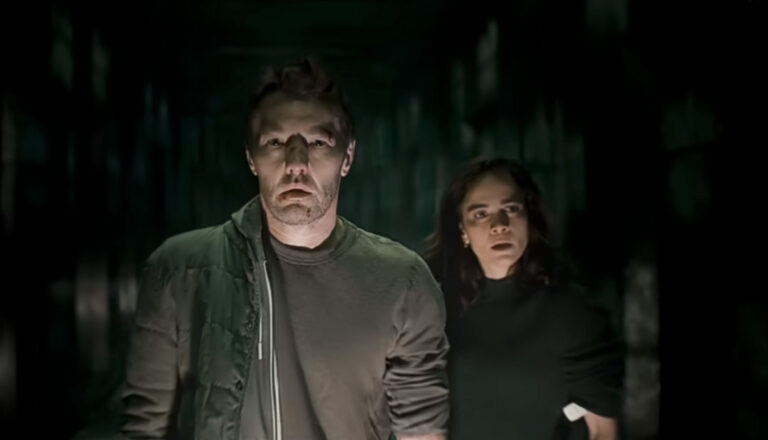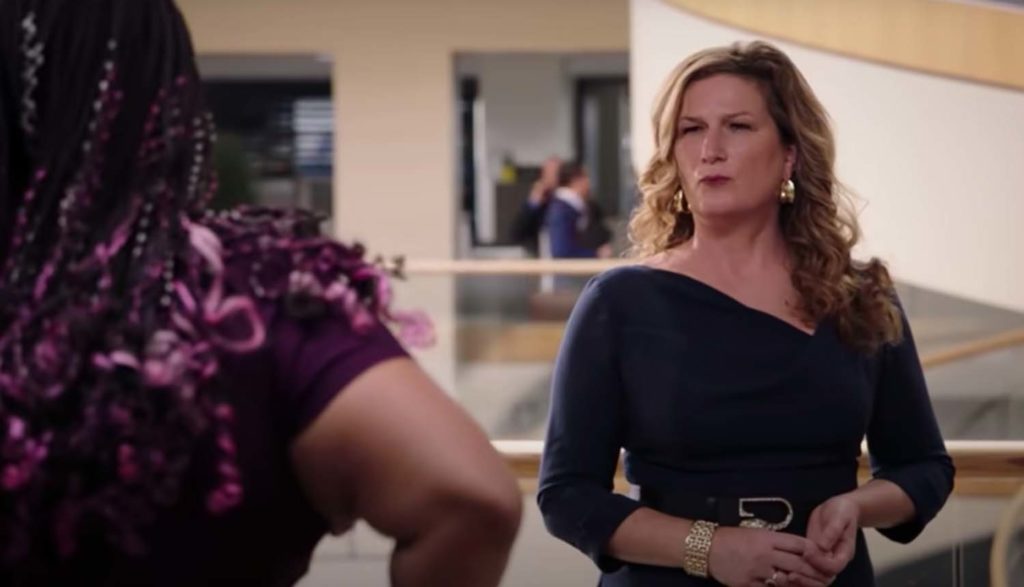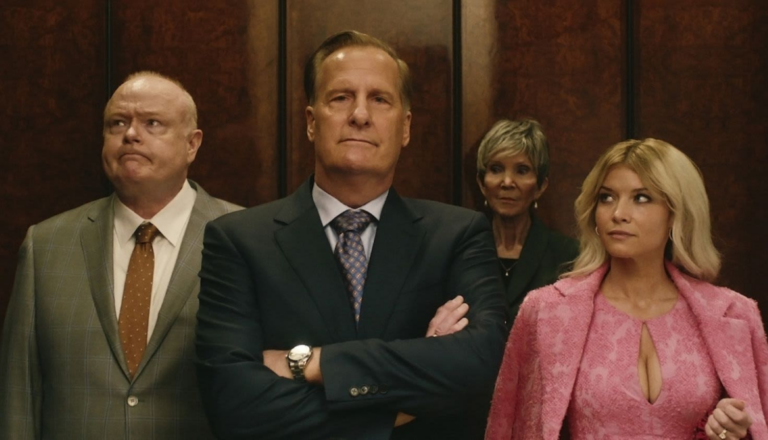
Dark Matter
Dark Matter reminds us that our choices define us. They make us who they are. But this show makes some poor choices itself.

To be the CEO of a major automotive company, should you have to know how to drive a manual transmission?
How about knowing how to drive at all?
Well, it’s a little too late to think about that. Katherine Hastings has just been named the new CEO of Payne Motors after spending 20 years in the pharmaceutical industry. And it’s painfully obvious that though she may bring unique ideas, she’s skating on thin ice.
But make no mistake—she’s not incompetent, just out of her element. And as she begins to learn the ins and outs of the automotive industry, she’ll keep the company relevant and thriving.
That is, if they don’t kick her out before then.
The Office, Parks and Recreation, Brooklyn-99 or Superstore: If you’ve seen any of those shows, you already know the type of series American Auto is. It highlights the twists and turns of a bumbling crew of employees placed in awkward and comical situations, usually as a result of their own social ineptitudes. And that makes sense, because its producer, Justin Spitzer, also worked on The Office and Superstore.
But now that a paper company, department of government, police station and grocery store have all been satirized, the eye of the mockumentary turns its gaze to an automotive headquarters in Detroit, Michigan.
Just like those other shows, American Auto derives its episode plot points primarily from the well-meaning but misguided ideas of its employees. Also like the others, some employees in American Auto are pretty normal, while others would get quickly fired in any similar real-world circumstance.
Obviously, a lot of what’s found in American Auto isn’t new—including the negative content. But it is notable that the show revs its metaphorical engines at the chance to make sexual innuendos like it’s going out of style, causing us to wonder how inept the HR department must be to allow all the crude talk and behavior.
Viewers should expect mostly crude one-liners focused primarily on sex, drugs and moderate (albeit mostly comedic) violence. In one episode, the company brainstorms how to turn a kidnapping to their financial advantage, reference masturbation and discourage the biblical view of sexuality. That’s par for the course, as in most episodes, they cannot finish a scene without addressing sexual topics.
Other than a new setting, American Auto really doesn’t bring anything new to the table—but it does reveal its dependence on crude humor.
When Payne Motors’ new self-driving vehicle brake sensors fail to recognize darker colors, a black employee gets hit by the car. Afraid of being accused of making a racist vehicle, Payne Motors’ new CEO Katherine commissions her employees to create a replacement car in a day.
Katherine believes some people “fetishize transportation,” and she refers to heroin. Additionally, Katherine alludes to a drug which caused babies to be born without their heads attached. After a self-driving car hits a black employee named Jack, Katherine calls the vehicle a “Klanmobile.” She also references medication related to bowel movements. Later, she talks about sex in the office, and she references stimulation pills for male genitals.
Employee Wesley Payne makes a reference to female genitals and drug dealers. He mocks Katherine by saying it sounds like she uses a catheter. After learning of fellow employee Sadie’s sexual romps, he calls her “sexy Sadie.” Wesley also talks about how he used to snort medication.
Dori laments having to work under a female CEO, because it means she can no longer flirt her way out of trouble. However, after further consideration, she supposes that she can still try it. She makes a reference to a sex toy as well.
Jack and others imply the founder of Payne Motors was antisemitic, sexist and racist. Jack gets hit by the self-driving car whose braking sensors don’t notice him due to his dark skin. Employee Sadie references having sex with Jack after drinking alcohol, and there is a reference to an STD.
Accused of making a racist car, employee Cyrus claims that the car also “hit Indian people, too.” A man finds a sleeping child in a locked car. A group of employees steal parts off of employee cars. Another employee references LSD. At a press conference, a woman serves alcohol, and the group of employees drink after the conference ends.
We hear one use of “h—” and a crude reference to female genitalia. God’s name is misused three times, and the name of Jesus is used inappropriately once. Real-life cars whose names accidentally translated into Spanish words referring to prostitutes and masturbation are referenced.
When reporter Alan Strong arrives to film a profile on Katherine, everyone preps her so that he won’t suspect that she doesn’t know anything about cars.
British employee Elliot says reporters murdered the Princess of Wales, and he implies that they’ll do worse to employees at Payne Motors. Later, Elliot references sex, causing a group of employees to talk about Sadie and Jack’s sexual encounters.
Sadie tells Katherine to use her identity as a woman to garner sympathy from the press. That prompts Katherine to make a comment about female genitals. Later, Sadie unintentionally uses a sexual innuendo.
Katherine makes multiple references to passing gas, and she calls driving a car “orgasmic.” She informs her employees that she becomes aroused after driving, and she tells them that she plans to have sex with her husband after work.
In a discussion, Wesley references sex. After a bad interview, Dori implies Katherine may have killed herself. Employees drink alcohol.
The f-word is used, but it is censored out comedic effect eight times. “H—” is used twice, “a–” is used four times” and “d–n” is used once. God’s name is misused five times.


Kennedy Unthank studied journalism at the University of Missouri. He knew he wanted to write for a living when he won a contest for “best fantasy story” while in the 4th grade. What he didn’t know at the time, however, was that he was the only person to submit a story. Regardless, the seed was planted. Kennedy collects and plays board games in his free time, and he loves to talk about biblical apologetics. He thinks the ending of Lost “wasn’t that bad.”

Dark Matter reminds us that our choices define us. They make us who they are. But this show makes some poor choices itself.

Take the veil off this Hulu show, and you’ll find more than just a compelling story: You’ll uncover scads of problematic content.

Bon Namihira travels into the past to save innocent lives. But potential viewers won’t travel far before they encounter the show’s violence and profanity.

Talent and intrigue ultimately can’t cloak the truth about this vulgar, crass and graphic drama on Netflix.